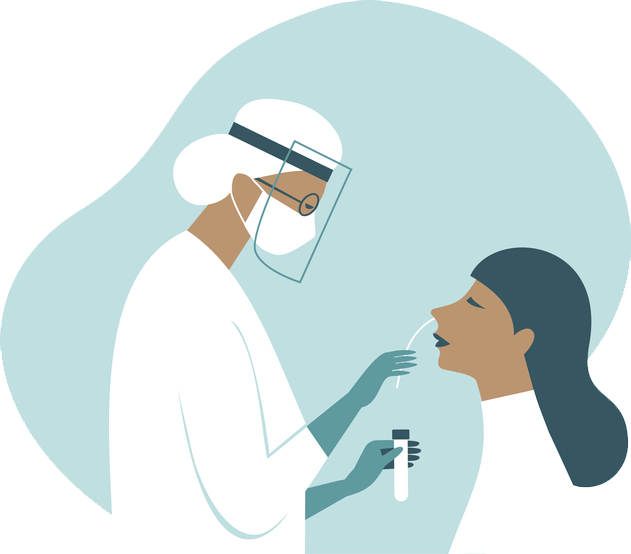Attention Deficit Hyperactivity Disorder
Attention Deficit Hyperactivity Disorder is a neurodevelopmental disorder that involves trouble paying attention and controlling impulsive behavior. It is usually first diagnosed in childhood and often lasts into adulthood. There are three main types: Inattentive, Hyperactive-impulsive, and Combination. The Inattentive type presents to have difficulty in completing a task, paying attention to details, or following instructions. The hyperactive-impulsive type presents to have difficulty in sitting still, excessive talking and moving, and interrupting others often. The last one is a combination of two types.
Signs and Symptoms
It is normal for children to have trouble focusing and behaving at one time or another. However, children with ADHD do not just grow out of these behaviors. The symptoms continue, can be severe, and can cause difficulty at school, at home, or with friends. A child with ADHD might talk too much, fidget, make careless mistakes, have a hard time resisting temptation, have trouble taking turns, and have difficulty getting along with others.
How is it caused?
In adults and children with ADHD, the patient’s brain often has an imbalance of neurotransmitters or chemicals involved in receiving and sending signals. This imbalance can be genetic, environmentally caused, or a combination of both. Researchers still are not completely sure what causes ADHD to occur. Certain parts of the brain responsible for focusing or switching from one area of focus to another may be affected by this causing inefficiency. In adults and adolescents, this often presents as easily spacing out when being spoken to, engaging in risky behavior without thinking of the consequences, and a poor ability to prioritize important tasks. Adults are typically more able to disguise symptoms and make up excuses for the behavior than children.
When to see a doctor?
If you’re concerned that your child shows signs of ADHD, see your pediatrician or family doctor. Your doctor may refer you to a specialist such as a developmental-behavioral pediatrician, psychologist, psychiatrist, or pediatric neurologist. It’s important to have a medical evaluation first to check for other possible causes of your child’s difficulties.
Treatments
Behavioral Therapies
Neural Feedback Therapy
This focuses on the theory that people with ADHD have differing proportions of brain waves. There are four types of brain waves: alpha, beta, theta, and delta. All of which correlate with different states of consciousness. ADHD patients tend to have more theta waves and fewer beta waves than people without ADHD. Researchers help train patients to control these brain waves by monitoring their brain waves and letting the patient know when the right frequencies are being reached. This training allows patients to be in more control of their brain waves helping them reach the proper states.
Working Memory Training
This involves training the short-term memory of individuals with ADHD using computer programs. People with ADHD often suffer from working memory which is the memory that is used over the short term. Studies have shown it is beneficial in helping overall working memory, while other studies have shown it is mainly beneficial in helping with visual working memory.
Pharmacological Treatments
Stimulant Therapy
This is the most popular choice of treatment among providers. They work with 60-70% of patients to help focus and cut down on distractions. This is used primarily to treat moderate to severe ADHD. Examples of these medications include Amphetamines (Adderall, Dexedrine, Vyvanse) and Methylphenidate (Ritalin, Concerta, Focalin). Effects of these medications may include loss of appetite, weight loss, as well as sleeping problems. It is important to talk to your provider about what treatment option is best as other co-conditions may warrant different treatments.
Non-Stimulant Therapy
Medications in this therapy are typically reserved for those who experience negative side effects from stimulants or for cases in which stimulants do not work. Examples of these medications include guanfacine, clonidine, and atomoxetine. It may take several weeks before the effects of these medications are seen.
Antidepressant Therapy
These medications are typically used off-label to treat ADHD, meaning they are not FDA-approved but some doctors have found them useful in helping with ADHD that is resistant to other treatments. Examples of these medications include bupropion, imipramine, and nortriptyline. It may take several weeks before the effects of these medications are seen. It is also important to know that there is an increased risk of suicidal thoughts when starting these medications and it is critical to monitor children, especially teens, for any ideation.
What can you do besides medication?
In most cases, ADHD is best treated with a combination of behavior therapy and medication. It is important to work with your child’s doctor to be involved in their treatment. This can mean creating a routine for your child to follow before bed and managing the distractions present like TVs and gadgets being off. It is also important to ensure your child is getting enough exercise during the day and avoiding food high in sugar. Use effective disciplines such as timeouts, proper guidance, and use of taking away privileges instead of scorning. Consider alternative therapy options like Music Therapy and meditation and mindfulness classes. Talk to your child’s doctor about the options appropriate for your child.





